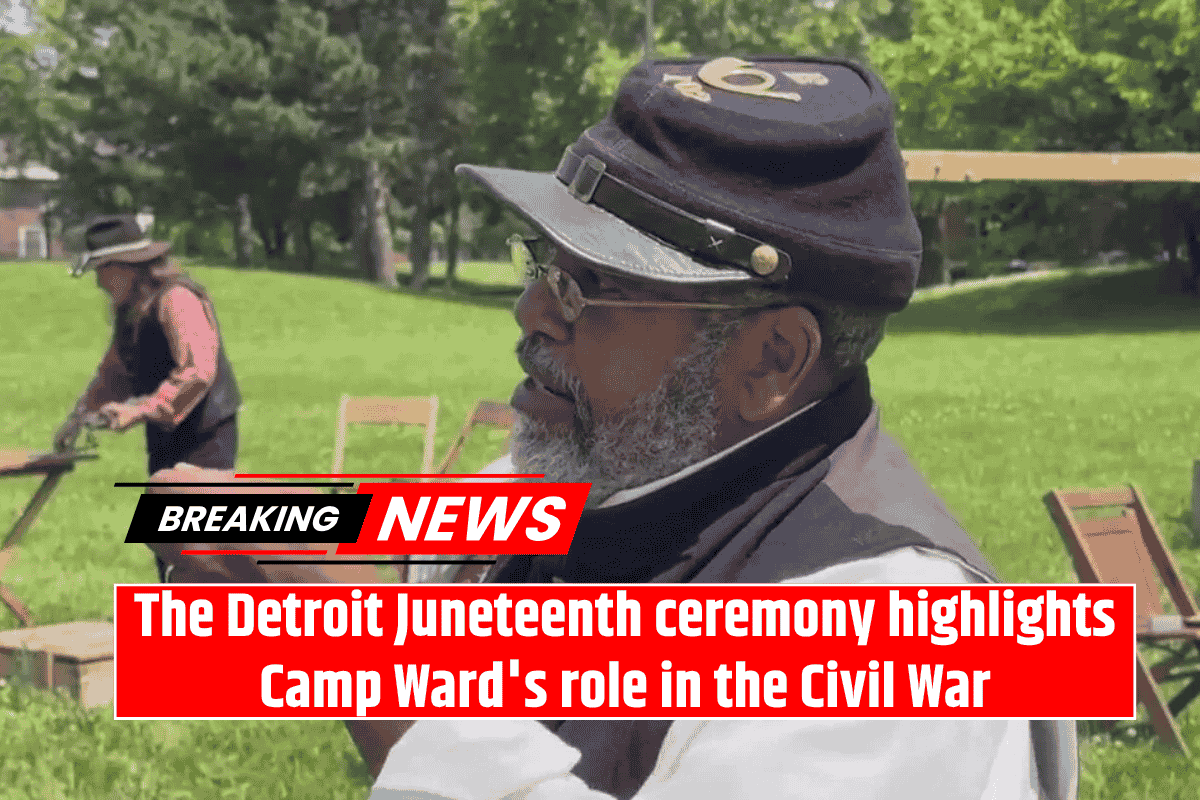June 19, 2025, will mark a historic milestone – the 160th anniversary of Juneteenth, a day of deep significance in the history of Black Americans. The holiday celebrates the emancipation of enslaved Black people in Galveston, Texas, on June 19, 1865, when Union soldiers delivered the news of freedom to the last enslaved people in the state. This day remains a powerful reminder of the struggle for freedom and equality.
Celebrations Begin in Detroit
In Detroit, celebrations have already started. The festivities are particularly special as they take place in Campau Park, a site rich in history. Over 150 years ago, this park was known as Camp Ward, where the 102nd United States Colored Troops (USCT) trained during the Civil War. This regiment, the only Black regiment from Michigan that fought in the Civil War, holds a significant place in the state’s history.
Guyler Turner, president and corporal of the 102nd U.S. Colored Troop Company B, explained the importance of the regiment, saying, “We represent the only Black regiment from Michigan that fought in the Civil War.” This military history is a cornerstone of the Juneteenth celebration in Detroit, as reenactors and local volunteers work to honor the past.
The Role of Black Soldiers in the Civil War
On Saturday, a group of Civil War reenactors, with the help of a local Boy Scout troop, set up a tent at Campau Park to showcase what life was like for the nearly 900 volunteers of the 102nd USCT. They demonstrated the hardships faced by soldiers fighting not only for their country but also for their own freedom. The soldiers’ clothing and the oxtail soup they prepared offered a glimpse into their daily lives during the war.
Sharon Elizabeth Sexton, chair of the Camp Ward Juneteenth Celebration, emphasized the importance of this moment in history. “It was a large community of free Blacks here, and also of runaway Blacks who wanted to do something to really earn their own freedom,” she said. Their bravery and commitment helped pave the way for future generations, and their legacy is being preserved through these celebrations.
The Black Bottom Legacy
After the Civil War, the area around Camp Ward became home to a legendary Black neighborhood known as “Black Bottom.” Eleanor Anderson, also known as the “Queen of Black Bottom” and founder of the Juneteenth event, shared the neighborhood’s powerful origins. “At the end of the war, they were given this land to build their homes, and this is where ‘Black Bottom’ started and grew and grew,” she explained. This neighborhood became a center for Black culture, resilience, and history in Detroit.
Anderson’s passion for preserving the history of Black Bottom is reflected in her goal of having the area designated as a national historic landmark. “I would tell everybody and anybody that we should have our own Juneteenth and not wait for somebody to do it for us,” she said, reflecting the pride and autonomy in the celebration.
Preserving History for Future Generations
Sharon Elizabeth Sexton echoed this sentiment, stating, “Basically, we want people to know that we are part of history.” The Juneteenth celebrations aim to keep the stories of these communities alive for future generations. Guyler Turner also emphasized the importance of storytelling, saying, “Those people laid the foundation for us to be here today. And so that is very important for us to be able to be storytellers, to tell that story, so each generation will never forget where we came from.”
Juneteenth serves not only as a celebration of freedom but also as a reminder of the sacrifices made by those who came before. As we approach the 160th anniversary, it’s a time to reflect on the progress made and continue the work toward a more just and equal society.
